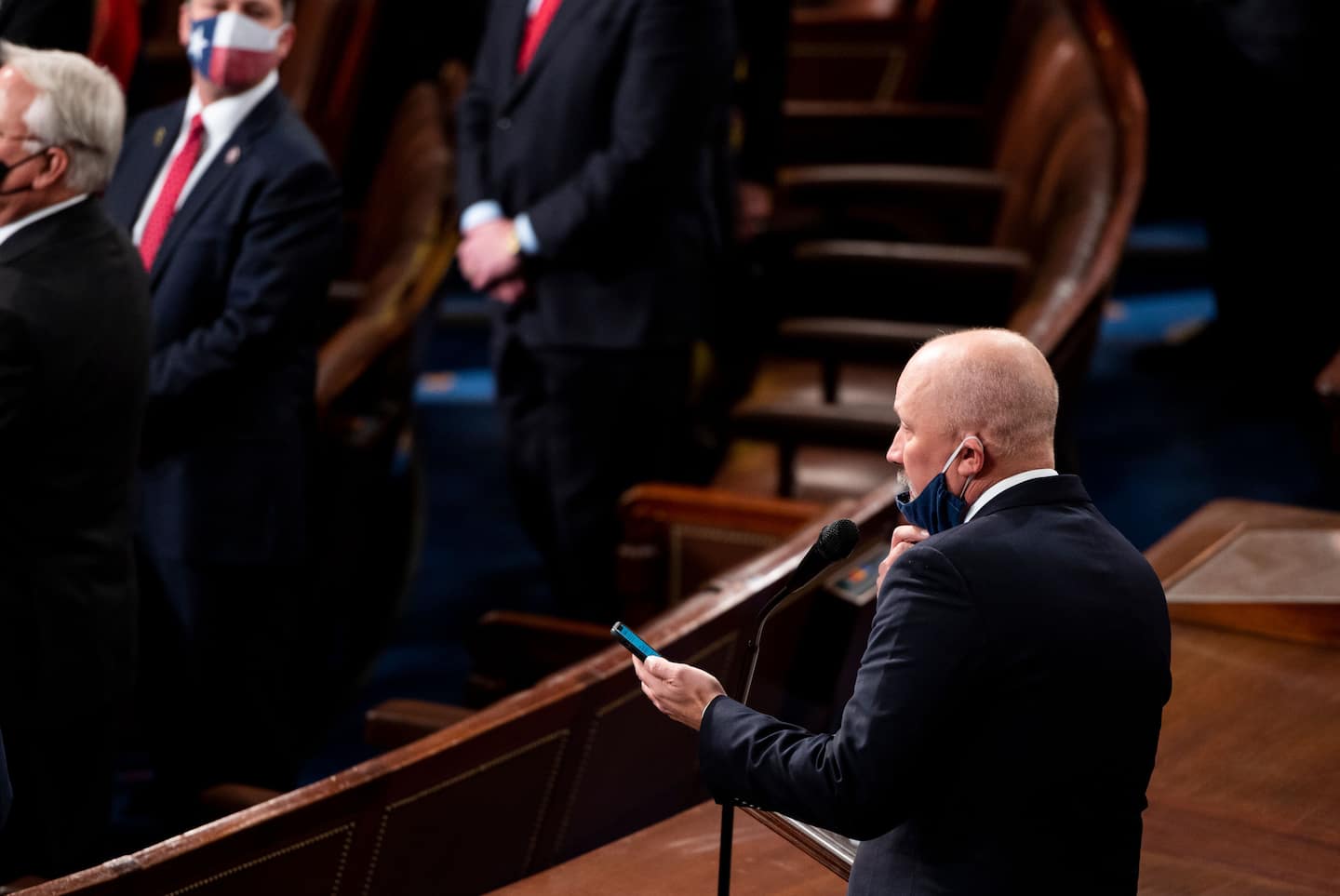Chip Roy just spotlighted the GOP’s highly convenient interest in voter fraud

But Roy didn’t just do that; he also decided to make a point.
Jan. 3 is, per the Constitution, the swearing-in day for members of Congress. And members of Congress can’t only object to accepting a given state’s electoral slate, but they can also object to the seating of fellow members. So if the presidential race was suspect, Roy reasoned logically, why not the elections of his fellow members of Congress from those same states?
So he pushed for a vote. All but two Republicans voted to seat the members, bypassing any concerns about the validity of their elections.
This was a stunt, to be clear but an instructive one.
One of the most important aspects of the GOP attempt to challenge the 2020 election results is that the Republicans have virtually no actual evidence behind them. Courts have rejected the Trump team’s claims basically without fail. Had courts found some reason for a certain number of votes to at least be suspect, it would have lent credence to such an effort. But that hasn’t happened. Even most of the big-name Republicans objecting say this isn’t about proven fraud but rather the overwhelming suspicion of fraud by the GOP base. Their argument: How can you elect a president with such a thing unsettled? You can’t, but apparently you can seat members of Congress who ran on the same supposedly suspect ballots.
None of the Republicans elected to Congress in the six states at issue won by as tight a margin as Joe Biden did. Republicans who support objecting to the electors in those states could argue that those races weren’t close enough to be in doubt.
But if you’re gong to suggest widespread fraud that hasn’t been substantiated, how can you rule anything out? If there was fraud in Detroit but it hasn’t been found, why can’t there have been fraud in the Detroit suburbs or in Grand Rapids that also had evaded Michigan’s or judges’ notice? If there was fraud in Atlanta that likewise hasn’t been rooted out, how can you rule out such a thing happening in its suburbs or elsewhere in the state?
The thing is, despite the GOP’s congressional wins in these states not being as close as the presidential race, there were close races — races close enough that they fall within the number of votes that Trump has suggested might be fraudulent.
At a rally last month in Georgia, Trump cited claims from former Kansas attorney general Phill Kline (R) that there were, in Trump’s retelling, “over 300,000 fraudulent ballots in Arizona, 548,000 in Michigan, 204,000 in Georgia, and 121,000 in Pennsylvania.” The claims are dubious at best, but let’s take them at face value for the moment.
There are 14 congressional districts in Michigan, meaning that if you assumed an equal number of fraudulent ballots in each of them, that’s about 39,000 in each race, give or take. Newly elected GOP congressman Peter Meijer won the 3rd District by fewer than 24,000 votes. Even if you grant that the alleged fraud was more focused on urban areas — again, charitably, based on the urban-suburban shifts between 2016 and 2020 — that still leads to an open question about whether there could be enough fraudulent ballots in the Grand Rapids-based district to matter. But GOP members apparently have no reason to examine that.
The situation is similar in Arizona. There are nine congressional districts in Arizona, so Trump’s claim would mean an average of more than 30,000 fraudulent votes per district. The margin of victory for GOP House incumbent David Schweikert? Just more than 18,000 votes. Again, Republican members of Congress apparently had no reason to question whether fraud might have changed that result.
The thing about fraud, though, is that if it’s substantiated enough to halt a presidential election, despite the lack of specificity when it comes to where it happened or how large it was, you probably need to make sure it hasn’t gone undetected in other places. If Michigan has enough fraud to overturn a Biden margin of more than 150,000 votes, why not be curious about a congressional race decided by 24,000 votes?
Republicans seem to have subscribed to the Trumpian belief that fraud benefits only Democrats, but how can you say that when no fraud has actually been substantiated? Similarly, when no fraud has been proved, how can you draw the line on the amount of fraud being sufficient enough to change the outcome of a presidential election but not a congressional race?
Roy cast a spotlight Sunday on how arbitrary and partisan all of it is.






